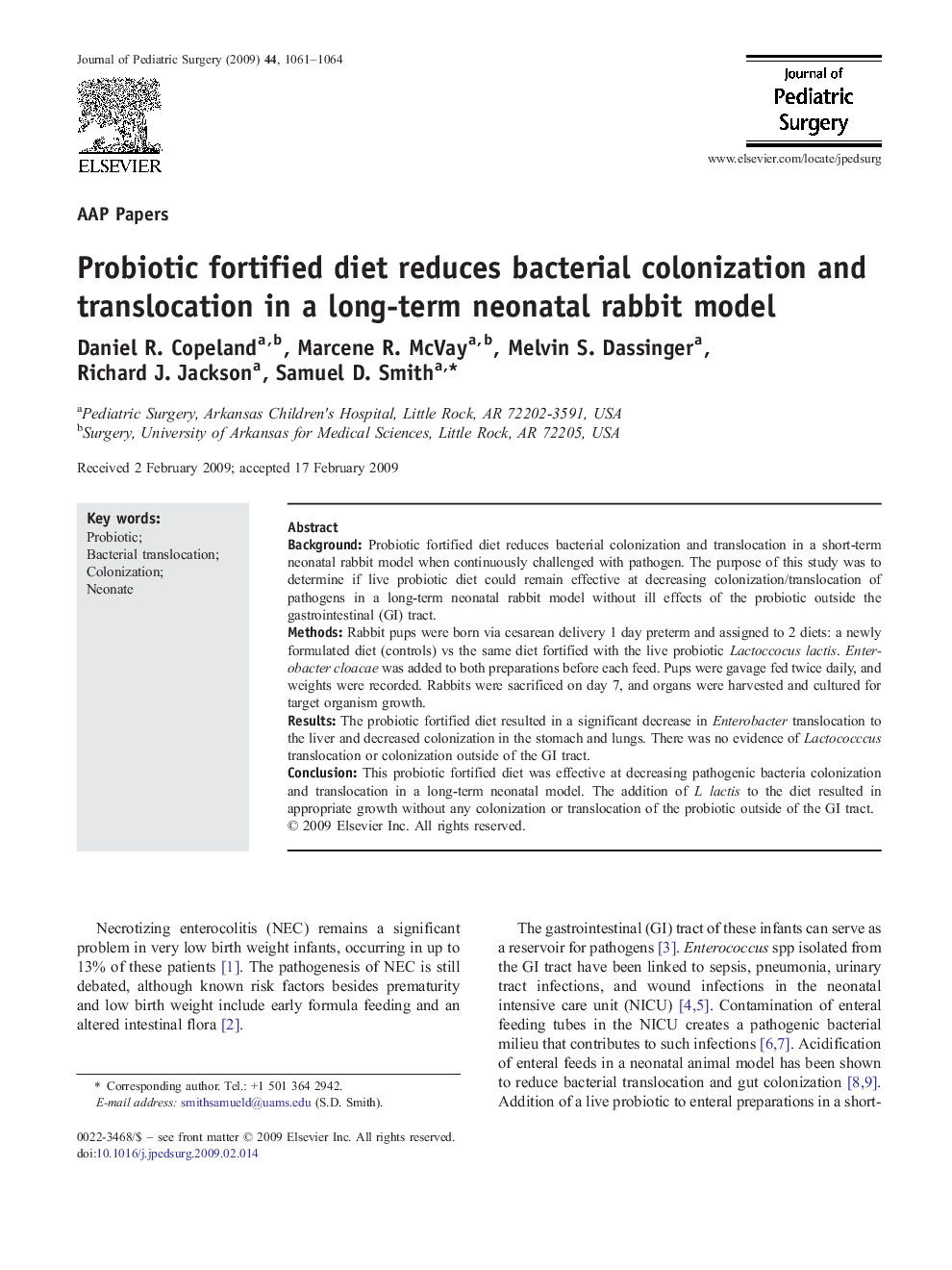| Article ID | Journal | Published Year | Pages | File Type |
|---|---|---|---|---|
| 4159465 | Journal of Pediatric Surgery | 2009 | 4 Pages |
BackgroundProbiotic fortified diet reduces bacterial colonization and translocation in a short-term neonatal rabbit model when continuously challenged with pathogen. The purpose of this study was to determine if live probiotic diet could remain effective at decreasing colonization/translocation of pathogens in a long-term neonatal rabbit model without ill effects of the probiotic outside the gastrointestinal (GI) tract.MethodsRabbit pups were born via cesarean delivery 1 day preterm and assigned to 2 diets: a newly formulated diet (controls) vs the same diet fortified with the live probiotic Lactoccocus lactis. Enterobacter cloacae was added to both preparations before each feed. Pups were gavage fed twice daily, and weights were recorded. Rabbits were sacrificed on day 7, and organs were harvested and cultured for target organism growth.ResultsThe probiotic fortified diet resulted in a significant decrease in Enterobacter translocation to the liver and decreased colonization in the stomach and lungs. There was no evidence of Lactococccus translocation or colonization outside of the GI tract.ConclusionThis probiotic fortified diet was effective at decreasing pathogenic bacteria colonization and translocation in a long-term neonatal model. The addition of L lactis to the diet resulted in appropriate growth without any colonization or translocation of the probiotic outside of the GI tract.
